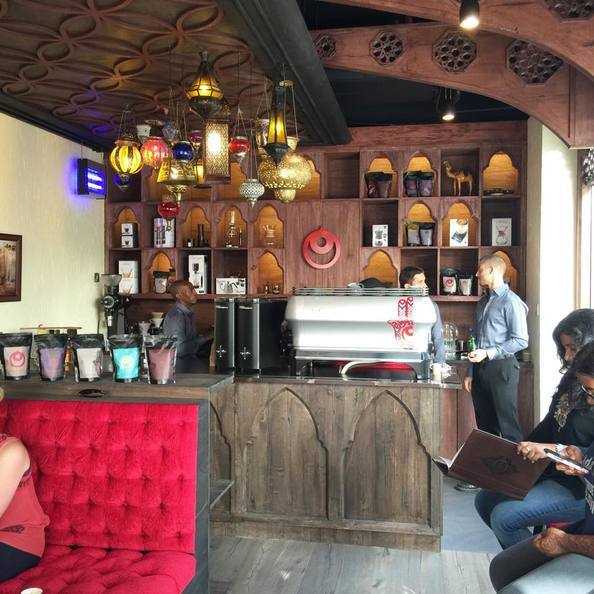MILAN — New Allegra research reveals the total Middle East branded coffee shop chain market reached 9,084 outlets in 2018. Significant outlet growth is forecast over the next 5 years as aspirational western café concepts become more popular and premiumisation gains momentum. Industry leaders are broadly positive about trading conditions, but operators must navigate a range of economic and political challenges across the region to ensure success.
Project Café Middle East 2019 is Allegra World Coffee Portal’s first, ground-breaking new research on the Middle East’s emerging branded coffee shop sector.
The comprehensive report analyses market share of the top branded chains, offers industry leader insight and reveals the latest trends, opportunities and challenges across 12 key countries, including deep dives into Iran, Saudi Arabia and the UAE.
Our analysis is based on Allegra’s unparalleled insight and knowledge of key industry stakeholders, including canvassed opinion from 300 industry leaders via interviews and surveys to create the most accurate snapshot of the Middle Eastern coffee shop market to date.
Dubai: the focal point for Middle Eastern café innovation
The UAE has experienced huge growth in both domestic and foreign-invested specialty coffee shop chains. In Dubai, an influx of artisan F&B brands has capitalised on consumer appetite for premium coffee shop experiences, with a clear majority of UAE industry leaders surveyed by Allegra stating there is still plenty of growth potential in the branded coffee shop market. But even amid the growing popularity of specialty coffee, industry leaders cite convenience as the number one factor behind coffee shop success – ahead of coffee quality and service.
Key growth markets: Saudi Arabia and Kuwait
The liberalisation of Saudi Arabia’s economy under the government’s ‘2030 Vision’ is expected to significantly boost the country’s F&B sector. More than three-quarters of Saudi industry leaders surveyed by Allegra believe like-for-like for sales in the Saudi coffee shop sector will outperform national GDP in the next 12 months.
Industry leaders report a surge in third-wave café concepts in Kuwait, with well-travelled and highly educated consumers rapidly adopting artisan coffee products, such as single origin and cold brew. Allegra forecasts above regional average growth for branded coffee shops in 2018, with industry leaders surveyed unanimously agreeing that more Kuwaiti consumers are visiting coffee shops than 12 months ago.
Key Middle East coffee shop market challenges
An economic blockade against Qatar continues to frustrate industry leader confidence in Qatar’s coffee shop market. Meanwhile, both the UAE and Saudi Arabia introduced VAT for the first time in 2018, with the rest of the GCC due to follow in 2019 – a move which could dent consumer confidence.
Israel has a healthy but highly fragmented coffee shop market comprising a more than 1,000 domestic chain outlets. International brands have, however, fared less well, with major chains like Starbucks and Dunkin’ Donuts so far unsuccessful in attempts to gain a foothold in the country. Nevertheless, Israeli consumers are highly receptive to new café concepts, with Allegra forecasting sustained branded coffee shop outlet growth over the next 5 years.
“We are delighted to present this new research to the global market place. The Middle East represents one of the world’s modern coffee culture hotspots, with high growth prospects for major chains across many markets and burgeoning opportunities on the horizon for the specialty coffee sector.” Allegra Group CEO and Founder, Jeffrey Young.


















